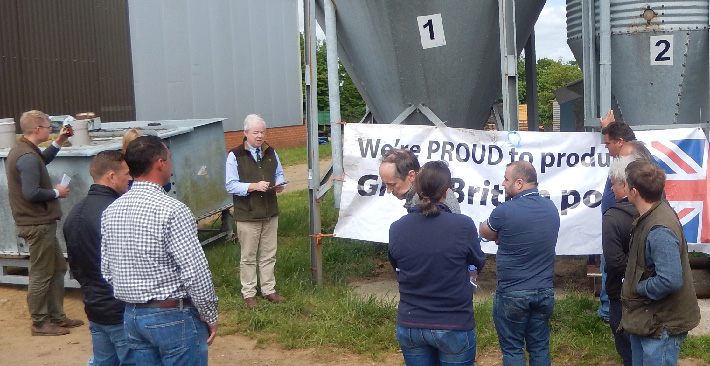On the day when the UK leaves the membership of the EU pig prices have generally held firm and we are now in the withdrawal period, during which a whole host of trade and other deals have to be considered and agreed before a clearer picture emerges about pig trading patterns and tariffs in the future.
The latest SPP has risen by .23p to stand at 162.54p and the influential German producer price is also heading north, up by three cents to €1.85, which is equivalent to 155p in our money.
Weekly contribution prices have in the main held at last week’s levels, with most between 155p at the bottom end and 163p at the top. There was a little more activity on the spot market with deals struck in the 160-162p area, but according to trade sources, these relatively firm prices have been generated by a slight shortage of live pigs rather than an improvement in domestic demand, which still remains selective.
Cull sow prices have also improved marginally by around 2p, but there was a slight weakening in the value of the euro which traded on Friday worth 84.02p, compared with 84.31p a week ago. If the pound continues to strengthen this could chip away at UK cull sow values to some extent, but demand is reasonably firm, with most traded between 108-113p and hopefully will stay that way.
Weaner prices have also continued to reflect a little more optimism in connection with finished pig values in the months ahead, with the latest AHDB 7kg farm average quoted at £42/head and 30kg weaners generally trading in the £57-£60 region.
Feed prices are however continuing to nudge up, with UK ex-farm spot feed wheat trading in the £148 region. Futures prices are also continuing to reflect relatively firm prices, with UK feed wheat quoted at £157/t for March and £166/t for September. Barley is trading at a £20-£22/t discount at £135/t for March and £141/t for September.
Soya prices remain largely static with Hipro soya values at £305/t for March, £294/t for June-October and £301/t for November-April ’21.
And finally, once the implications of Brexit have sunk in and all the new trade terms and tariffs clarified, the pig industry will have a better idea of whether this is the dawn of a new era or a major error!
The recent publication of the Agriculture Bill has, according to the NPA, “much room for improvement”.
Although provision for financial assistance to protect and improve the health and welfare of livestock forms part of the Bill, details are far from explicit and more information is needed about the implications of the Government’s plans to improve food security within the scope of the Bill at a two-year, rather than a proposed five-year, basis.
The main concern of the pig industry remains the threat of cost cutting pig meat imports from other countries which are produced to lower standards than those in the UK.
Producers are hoping that they will not be bankrolling a “cheap food” policy in the years ahead.




